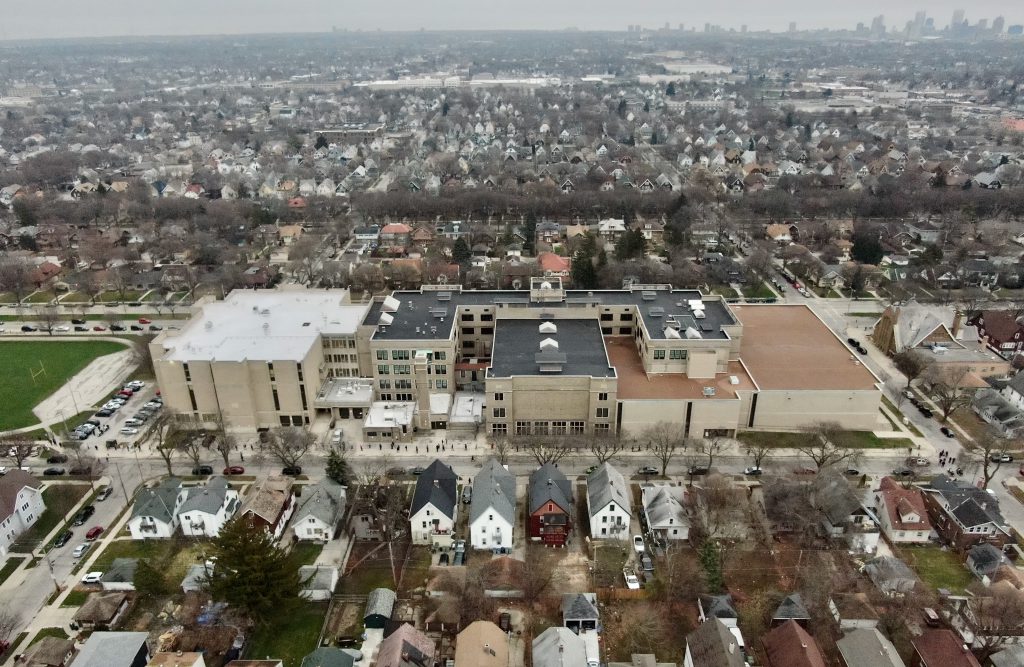Redistricting Should Consider Native Americans
Their vote has been diluted by discriminatory redistricting practices.
My name is Tehassi tasi, I am bear clan and my nation is people of the standing stone. I am the chairman for the Oneida Nation, and I would like to share some information about our perspective on Wisconsin’s redistricting process.
You may ask, what is “redistricting?” Redistricting is the process of redrawing congressional and (in this case) state legislative district boundaries every 10 years.
The Oneida Nation operates a multifaceted government operation, successful business ventures and a wide array of community development projects. We have 149 direct-service programs, while employing approximately 2,100 people. The purpose of our inherent right to self-governance is to protect the health, safety and welfare of our members while protecting our culture, revitalizing our language and restoring the environment to improve the quality of life for the community as a whole.
There are 11 federally recognized tribes in Wisconsin. Each tribe has its own unique history, tradition, customs and languages. In addition, each has democratically elected governments, which provide leadership and services to their citizens. As with any population, there are differences in social, economic and geographic conditions in Native American communities.
I recently testified before The People’s Map Commission to provide insight about the Oneida Nation’s priorities with respect to Wisconsin’s redistricting process.
The Oneida Nation supports an independent redistricting process.
Since the redistricting process focuses on where populations reside, we believe it’s important for policymakers to understand the historical and contemporary experiences of Native Americans throughout the U.S. — specifically how federal relocation, allotment, termination and assimilation initiatives have determined where and how Native Americans live today.
Nationally, Native American voters have been marginalized through discriminatory redistricting practices such as: racial and cultural vote dilution, intimidation, distances to voting locations and forms of voter suppression tactics such as restrictive voter identification requirements.
It is therefore important to not only include tribes in community input sessions but also actively engage each of the individual 11 federally recognized tribes and their leaders in the process.
The Oneida Nation wishes to see stronger Native American communities of interest in the process of determining congressional, state Senate and state Assembly district boundaries. The process should take into account Native American tribes’ historic and contemporary relationship with each other, with the State of Wisconsin and their cultural preservation, sovereignty and economic development objectives.
Further, we believe it is important that the redistricting process recognize both the reservations and urban populations and incorporate to the greatest extent. Again, the goal is to see stronger Native American communities of interest.
Through these recommendations, I hope we can accomplish a fair method that can recognize Native American peoples. We encourage policymakers in the process act with a good heart, a good mind and strong fire.
Tehassi Hill is serving his second term as chairman for the Oneida Nation. Hill is committed to preserving the Oneida’s language, culture and traditions. He was born and raised on the Oneida reservation and continues to live in Oneida, Wisconsin, with his wife and family.
This story was originally published by Milwaukee Neighborhood News Service, where you can find other stories reporting on fifteen city neighborhoods in Milwaukee.
More about the Gerrymandering of Legislative Districts
- Without Gerrymander, Democrats Flip 14 Legislative Seats - Jack Kelly, Hallie Claflin and Matthew DeFour - Nov 8th, 2024
- Op Ed: Democrats Optimistic About New Voting Maps - Ruth Conniff - Feb 27th, 2024
- The State of Politics: Parties Seek New Candidates in New Districts - Steven Walters - Feb 26th, 2024
- Rep. Myers Issues Statement Regarding Fair Legislative Maps - State Rep. LaKeshia Myers - Feb 19th, 2024
- Statement on Legislative Maps Being Signed into Law - Wisconsin Assembly Speaker Robin Vos - Feb 19th, 2024
- Pocan Reacts to Newly Signed Wisconsin Legislative Maps - U.S. Rep. Mark Pocan - Feb 19th, 2024
- Evers Signs Legislative Maps Into Law, Ending Court Fight - Rich Kremer - Feb 19th, 2024
- Senator Hesselbein Statement: After More than a Decade of Political Gerrymanders, Fair Maps are Signed into Law in Wisconsin - State Senate Democratic Leader Dianne Hesselbein - Feb 19th, 2024
- Wisconsin Democrats on Enactment of New Legislative Maps - Democratic Party of Wisconsin - Feb 19th, 2024
- Governor Evers Signs New Legislative Maps to Replace Unconstitutional GOP Maps - A Better Wisconsin Together - Feb 19th, 2024
Read more about Gerrymandering of Legislative Districts here
Op-Ed
-
Wisconsin Candidates Decry Money in Politics, Plan to Raise Tons of It
 Dec 15th, 2025 by Ruth Conniff
Dec 15th, 2025 by Ruth Conniff
-
Trump Left Contraceptives to Rot; Women Pay the Price
 Dec 8th, 2025 by Dr. Shefaali Sharma
Dec 8th, 2025 by Dr. Shefaali Sharma
-
Why the Common Council’s Amended Budget is Good Policy for Milwaukee
 Nov 20th, 2025 by Alds. Marina Dimitrijevic and Russell W. Stamper, II
Nov 20th, 2025 by Alds. Marina Dimitrijevic and Russell W. Stamper, II






















